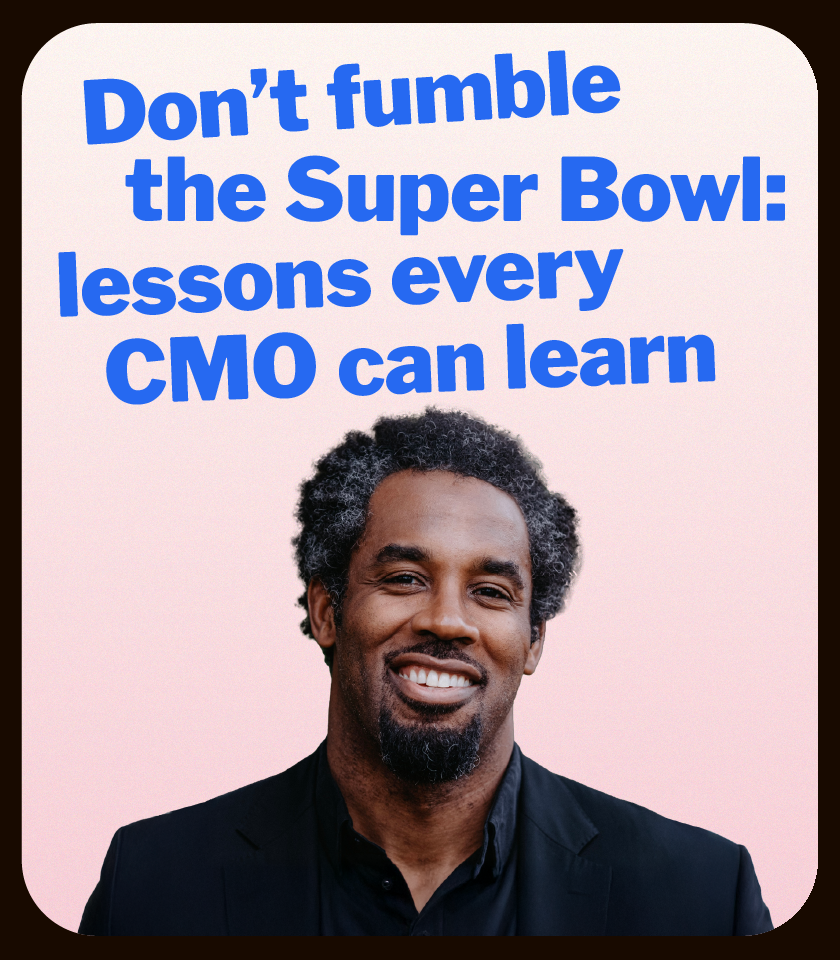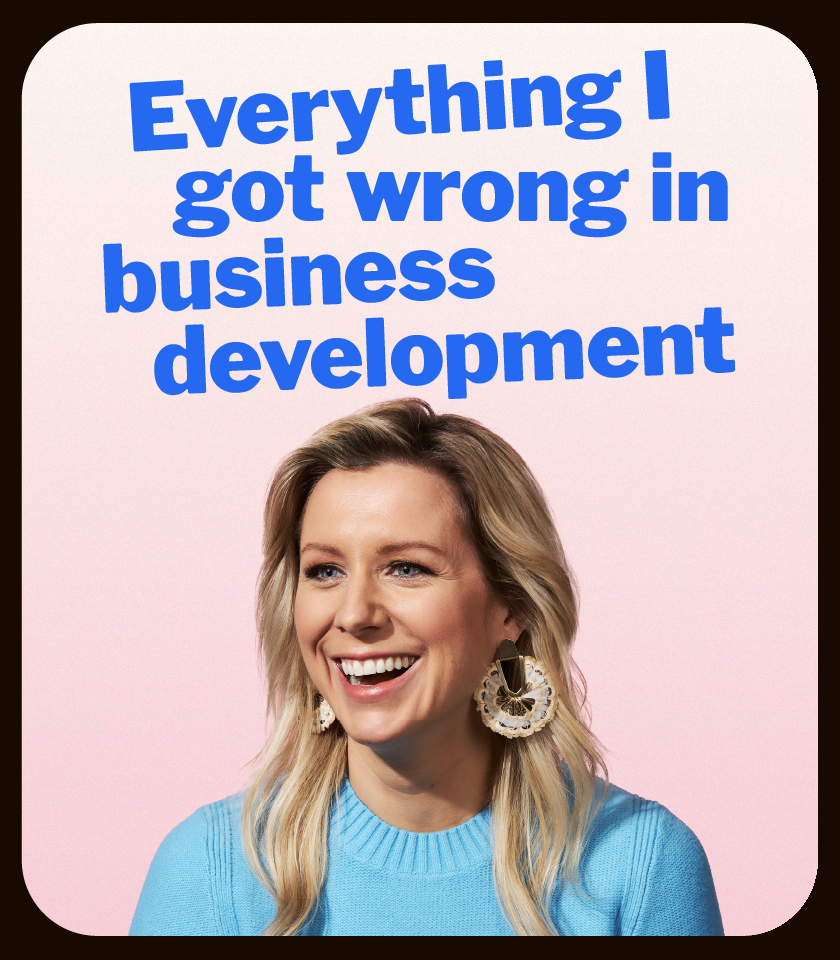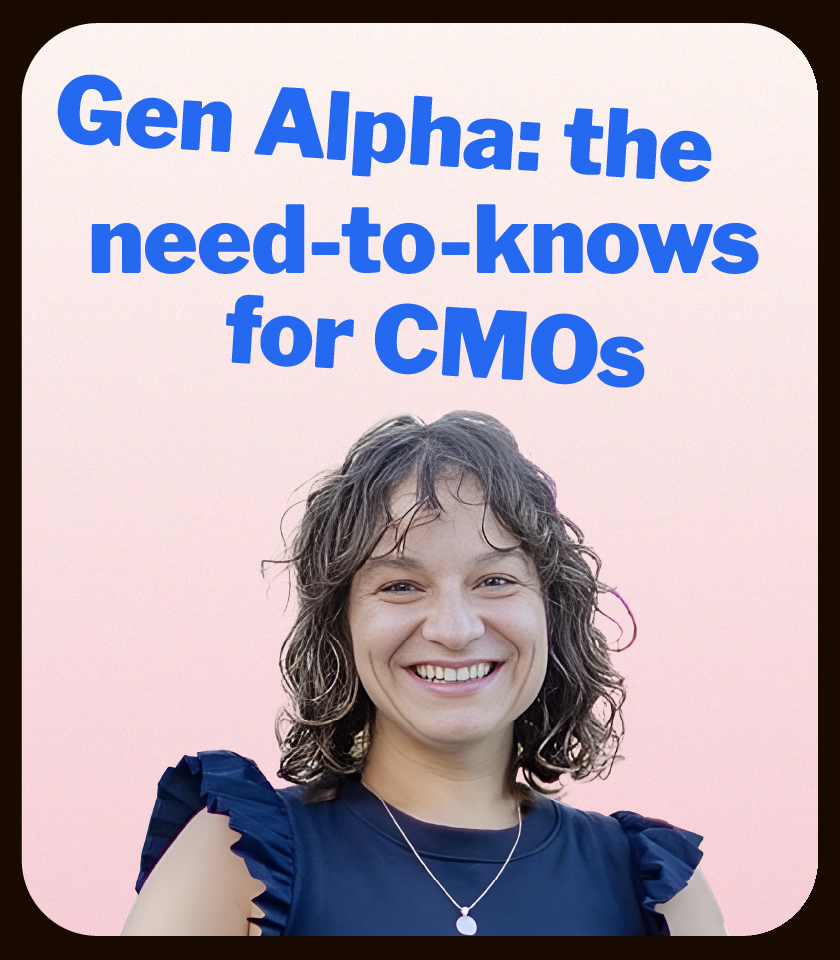We’re curious about artificial intelligence (AI)– as is much of the world right now. And rightfully so, we are on the brink of a life-changing AI boom. The advertising industry, in particular, is buzzing with conversations about its use and role with brands. So in true Curiosity fashion, we took a few questions to the agency to gather a collective sentiment toward AI and its potential to change advertising.
Here’s the twist: the questions we asked ourselves were written by AI. We prompted ChatGPT to write questions to ask humans about AI. The outcome: a list of 5 key takeaways on AI generated by 9 curious humans at Curiosity.
Everything you see below is human-generated:
1. Advertising needs humanity to spark connection.
Jillian Kavinksy Re, Digital Art Director
“The most effective creative is a piece that moves the soul, makes one think, or makes one laugh in a way that motivates them to make a purchase. Only humans can truly understand how other humans feel, thus only humans can make the most human work. At the end of the day, that's the type of creative you never want to lose.”
Molly Kleier, Strategy Intern
“The basis of successful creative ideas always has to lie within a human truth. If there is no human truth to an ad campaign or brand strategy, consumers will not relate or engage.”
Andrew Martin, Project Management and Client Partnership Intern
“AI can generate content based on its ability to learn at a highly efficient rate, and its ability to generate content based on what its programming tells it to, however with the human mind, we can create never before conceptualized ideas at a level that cannot simply be replicated by a programming system.”
Jenna Mason, Content Strategist
“While AI is super hot right now and seems like it's the way of the future, a robot will never be able to capture or emulate human emotions or the way humans think and process.”
Bhavik Joshi, VP of Strategy
“To me, creative problem solving is a courageous act. Often, it feels like letting go of one vine of knowledge and leaping towards another, not knowing if you’ll make it. And the fear of falling is what makes my brain contort in cat-like ways to improve my chances of making it. When you’re doing it right, that mid-air fear gives way to freedom and a sense of fulfillment. That is ‘the work.’ I wonder if and how AI will simulate that mid-air exhilaration and consequent skill/talent growth. And if it does, will it make a uniquely human act obsolete? And if it does, what does that mean for humanity, as a whole?”
2. Discovery research and executional tasks can be sped up with AI, but its outputs still need validation.
Christine Bowden, Account Director
“I’m excited about how it can help speed things up, like trimming down time spent researching something.”
Jillian Kavinksy Re, Digital Art Director
“Creativity and technique are not mutually exclusive: our industry is based on cultivating both of these skills, side-by-side. AI will likely play a role in technique moving forward, and, in my mind, that's a good thing.”
Bhavik Joshi, VP of Strategy
“In strategy, everything we know, think, or feel is valuable because of what we do with it. I’ve been enjoying asking ChatGPT to run some errands to find interesting information. For example, I asked it to find interesting facts or statistics about pollinators’ role in the food supply chain. One of the facts it presented was: Approximately one-third of the world’s food crops are dependent on pollinators. After checking the recency and veracity of the source, I was able to file that information away as: interesting, but not useful (yet).”
3. AI can visually prove that human-made ideas could work in real life.
Natalie Brinkman, Research Strategist
“The hardest part of creative work is convincing others that what you see in your head is something worth creating in real life. AI lets us simulate ideas in less time and with less resources.”
Evan Dulaney, Associate Creative Director
“This isn't a specific example in advertising, but as a copywriter, I don't possess the technical skills to show an idea or thought I'm trying to convey, particularly if it's abstract. Yes, I have words, but I also have pictures in my head that can't always be expressed through words alone. But with tools like Midjourney, I can play around with prompts to create images that can help bring a thought more fully to life.”
Erin Morris, Vice President of Operations
“AI can help push possibilities or spark creativity. In addition, AI can definitely help in efficiencies for mockups which I believe helps the team get there faster so they can put more focus on the final product.”
4. There are a lot of legal and ethical uncertainties about AI– clear boundaries are needed.
Christine Bowden, Account Director
“In an industry where you have to name the source of your facts, watch out for copyrights, and protect intellectual property, I’m very unclear on what’s acceptable to get and use from AI. How do you defend the use of it to a client’s legal team?”
Evan Dulaney, Associate Creative Director
“The world is in the 'play' stage of AI, and it's the wild, wild west when it comes to rules and regulations. There are legal gray areas and ethics issues that haven't been thoroughly explored yet. I think we need to keep playing and using it to better our processes, thinking and creative... but we should be wary of opening Pandora's box.”
Erin Morris, Vice President of Operations
“Legal use of AI is a big topic and a topic many operators and attorneys are trying to figure out which is even harder when it changes daily. With that said, AI is nothing we should avoid. We need to dive in and get on board– with some awareness, boundaries, and keep learning.”
5. AI can enhance and inspire creative thinking, but it can’t replace it.
Natalie Brinkman, Research Strategist
“I think AI’s role is to not take away from the brainpower, creativity, or humanity of people, but to instead, unlock something in each of us that we could not tap into (or tap into as quickly) without it. AI’s outputs are dependent on the creativity of the human inputting the prompt, eventually that may change.”
Henry Cracas, Agency Intern
“If you are writing something using an AI program, most of the time there will be little to no personality or creativity. AI text bots are more meant to pull info and restate it in a human-like way, but it really just simplifies it to where it still kind of sounds like a robot talking. That is why we still really need the human aspect of creativity in writing and idea brainstorming, so we don't all sound robotic.”
Evan Dulaney, Associate Creative Director
“AI can be a terrific tool in a creative's arsenal. It's a place to go for thought starters and inspiration. Thus, creativity's role is to wield these tools, build upon the thought starters and run with the inspiration. I think creativity is a uniquely human attribute. It takes human creativity to direct AI.”
Jenna Mason, Content Strategist
“The opportunities for AI seem endless. I love seeing all of the different uses for AI, especially how creative people can be with it on TikTok. One of my favorites is when people use AI to show what musical albums look like as a room or a person. At this point in time, I believe AI is a great place to start and a great resource when it comes to social.”
BONUS: What would Curiosity do if AI replaced our jobs?
Christine Bowden, Account Director
“If the day did come that it replaced me, I would spend my days volunteering. I don’t think AI could ever replace helping those in need, who may not have access to tech to help them.”
Natalie Brinkman, Research Strategist
“If AI did replace my job, I would want to do something even more quintessentially human than strategy – like farming on a remote, AI-less plot of land or rewriting all of the world’s greatest books by hand.”
Henry Cracas, Agency Intern
“If I lost my job I would go into teaching. Although AI is a sponge of knowledge, I doubt the impact it will have will change the teaching profession any time soon. The personal connections teachers make aren't replicable. I think I’d teach history, a subject I’m pretty passionate about. Or science!”
Jillian Kavinksy Re, Digital Art Director
“Let me go spend all day outside gardening while a machine does my job. That would be the dream. Just kidding!”
Jenna Mason, Content Strategist
“If AI replaced my job, I'd take the time to focus on my dreams of being on reality TV!”








